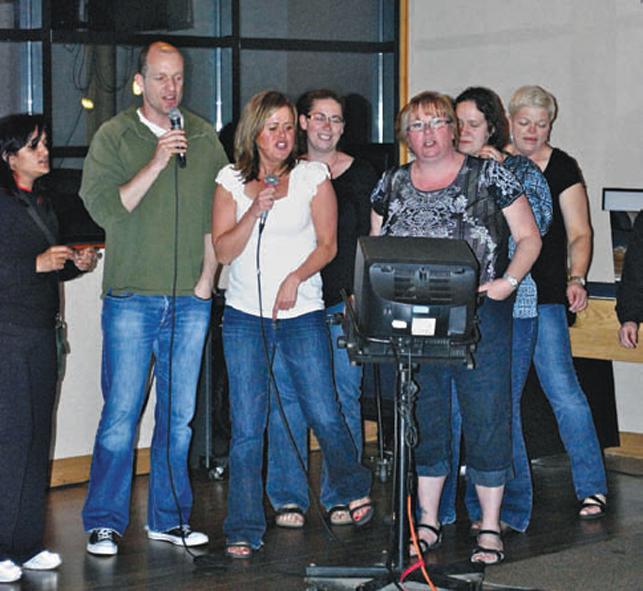
ETFO's Union School: Creating an Engaged Membership (Professional Services)
Unions work to create a better future for their members. Operating on the passionate belief that what we wish for ourselves we wish for others, the union movement has been at the forefront of every improvement in social justice and equity during the past 100 years. ETFO does not ignore its own role in this drive to craft a brighter future. We recognize that a union is only as strong as its members, and requires strong, emotionally intelligent leaders. This understanding led to the creation of the ETFO Union School. Now four years old, Union School has been shaped by input from current local leaders, provincial staff, future local leaders, and participants. It seeks to help members become better local leaders – in whatever role they may take on. Those accepted into the program must be serving on a local committee or on the local executive. Union School is an intensive year-long program that requires participants to actively engage in the task of refining their leadership skills.
Understanding the role of unions
Participants are introduced to the core concepts of the program during the first session in the fall. Dr. Elaine Bernard, director of the Labor and Worklife Program at Harvard Law School, emphasizes the importance of unions and their key responsibility to light fires not just put them out: unions are far more than “Grievances- R-Us”! Participants are introduced to the concept of emotional intelligence, which is critical for leaders working in education and in unions, where people’s needs should set the agenda. Participants receive their own emotional intelligence inventory and learn strategies to develop new strengths; happily, unlike our IQ, we can all improve our emotional intelligence quotient (EQ). Because union leaders need to understand the law, the program includes an in-depth study of the Ontario Human Rights Code. This complex piece of legislation affects many areas of a union leader’s work and participants focus on it through-out the program.
Participating in an online community
When participants return home after the first session they are immediately immersed in the hectic realities of their daily lives. This is hardly the ideal environment for creating provincewide networks! Our solution is an online learning environment that engages participants in discussions moderated by Union School alumnae.
During this time, participants undertake two assignments meant to expand their understanding of ETFO and their local. The first requires an in-depth examination of education legislation. The second focuses on the composition of their locals, and how representative of the local membership their executive is. We ask participants to speak with local members to ascertain what motivates them in their work, and what concerns them.
Applying their knowledge
Between face-to-face sessions participants complete a practicum activity designed to allow them to practise their growing leadership skills in a role-embedded setting. We encourage participants to select an activity that works to increase members’ engagement.
Last year’s practicums included;
- the development of a political action framework
- a “Women’s Healthy Tea” designed to increase awareness regarding women’s health issues
- a review of the local’s financial processes aimed at making them more efficient and transparent, and to identify long-term goals
- planning an International Women’s Day Dinner
- planning an FSL workshop – the first ever for that local
- a review of violence in elementary schools
- a survey of hiring practices that affect internationally educated teachers.
In many instances there was a significant impact on members’ engagement and on the local and its practices. The practicum assignment is open-ended, respecting the varied roles participants have in their locals.
Sharing new learning
The second face-to-face meeting is held at the CAW Family Life Education Centre in Port Elgin, a site of union training for more than 40 years. Participants share what they learned during the year, information that assists all in becoming better leaders. ETFO staff and external presenters work with the participants on strategies that enhance member engagement, communications, and more effective local leadership.
Recognizing the importance of both working hard and playing hard, the staff facilitators introduced a social committee to plan group activities. Last year’s committee did a brilliant job of planning activities that engaged the participants and enhanced provincewide networks.
Participants’ feedback has been positive; here are two examples:
“I cannot thank you all enough for the words of encouragement, the sharing of expertise, the motivational leadership and the care and support you have given us all this past year with Union School. This has been an amazing experience, one I won’t stop talking about for years to come in my local.”
“Each experience was interesting and relevant. A wonderful gift from ETFO to cherish and pass along to other members – both literally and in fulfilling our new ‘jobs’ . . . whatever they may be.”
In their online evaluations, participants agreed that the program achieved its goal of fostering the growth of new leaders in ETFO. It provided support, and fostered critical connections among the group.
Participants learned a great deal about ETFO, its members, other locals, and themselves. They appreciated and understood the importance of engaging members in the union. They felt they had received a clear focus for their work in ETFO.
As ETFO strives to create a better future for its members, the Union School will assist in forging a better future for the union. Many Union School alumnae have attained an enhanced role within their locals and the federation. Their efforts will pay off as they continue working to engage ETFO members in the crucial work of the union.